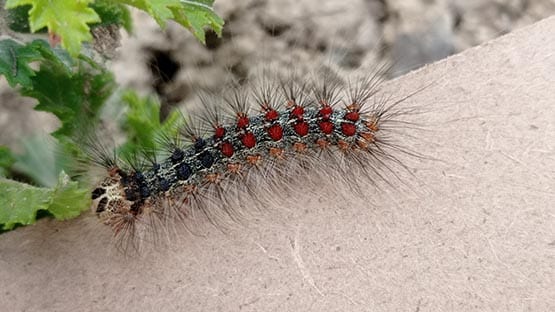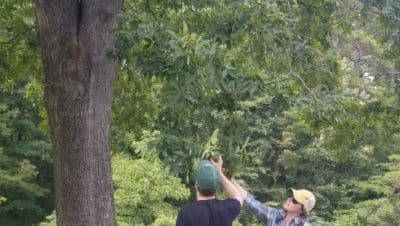
The George Washington – Jefferson National Forest will begin aerial suppression treatments on nonnative spongy moth caterpillars across 16,000 acres of the Lee and North River ranger districts on Monday.
Treatments will continue through May 18, depending on weather conditions.
The U.S. Department of Agriculture will use a naturally occurring bacteria – Bacillus thuringiensis var. Kurstaki, or Btk, as an aerial pesticide. Btk is widespread in natural ecosystems and is not harmful to humans, pets, plants or most beneficial insects. The spray will not cause harm to painted surfaces and can be removed with soap and water.
Btk is registered with the U.S. Environmental Protection Agency and is sanctioned by the U.S. Department of Agriculture for use against spongy moths.
Over the past two years, spongy moth numbers have grown causing forest defoliation in large areas in the northern Shenandoah Valley. Additional defoliation would likely cause significant tree mortality, which would create safety hazards in high visitor-use areas and damage forest habitats.
“With the help of the National Park Service and the Virginia Department of Forestry, the aerial treatments on the George Washington – Jefferson National Forest will meet the goals of the National Forests spongy moth suppression program to protect visitor health and safety, reduce hazard tree development and to protect sensitive historic and natural areas,” said Mary Yonce, district ranger.
These suppression goals will not eliminate spongy moths from the George Washington – Jefferson National Forest completely but will minimize their impacts in targeted infestation areas. Treatment areas were chosen based on USFS egg mass population surveys during the fall of 2023 and aerial defoliation mapping conducted by the Virginia Department of Forestry in June 2023.
For more information, visit www.fs.usda.gov/gwj
Related story
Spongy moth infestation causing damage, safety hazards at Shenandoah National Park
Published date: April 22, 2024 | 5:24 pm










